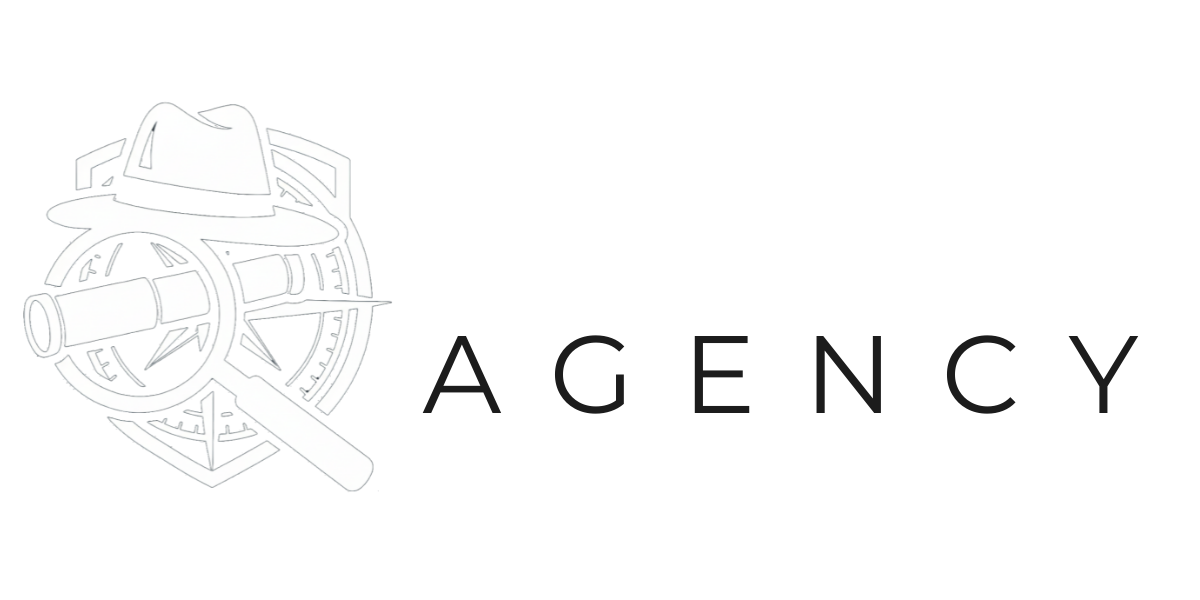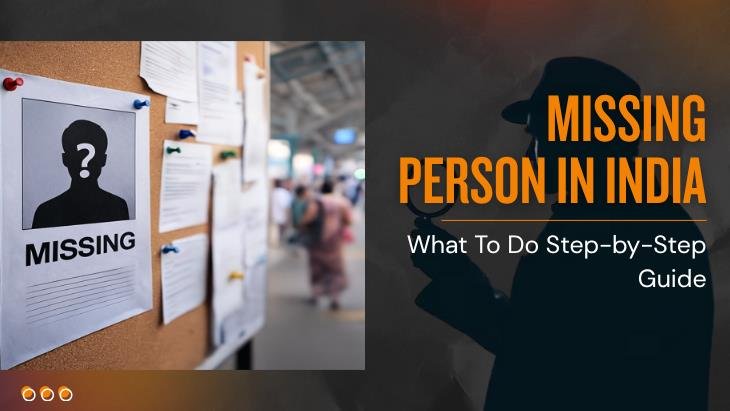When a loved one doesn’t come home, the minutes feel unusually loud. Your phone screen lights up every few seconds, but it’s never the message you want. Many PI’s worked missing-person cases across Mumbai, Delhi, and smaller towns in Maharashtra, Punjab, and Karnataka. The pattern is always the same: families swing between panic and paralysis during the most crucial window—the first 24–72 hours.
This guide is meant to steady that window. You’ll find what to do immediately, how to work with the police, where a private detective genuinely helps, and how to manage the process without burning out. Keep this open, take a breath, and move step by step.
First Hour, First Steps: Act Fast, Stay Organized
Two truths can live together: urgency helps, and clarity saves time.
- Call and text, then stop spamming. Check WhatsApp “last seen,” recent statuses, email auto-replies.
- Try “Find My” (iPhone) or Google’s “Find My Device” if you have access. Don’t remotely erase anything yet.
- Call 112 if there’s any sign of danger, violence, or a child is missing. Don’t wait.
- Check with immediate contacts: spouse/partner, best friend, roommates, manager/teacher, security guard, driver, and close neighbors.
- Visit the last known location quickly. Ask shopkeepers, taxi/auto stands, society watchmen. Note who you spoke to and the time.
- Contact nearby hospitals and casualty wards. Ask about “unknown patient” entries and medico-legal cases (MLCs). If you have the FIR/complaint number later, share it.
- Secure phones, laptops, diaries, and backpacks. Do not unlock with guesswork or third-party “hackers.” You might destroy valuable evidence.
There is no waiting period to file a police report in India. If a child is missing, it’s an immediate FIR. For adults, file a missing person report at once.
File a Police Report—Now, Not Tomorrow
Don’t delay the paperwork. It unlocks resources you can’t get any other way.
- Go to the nearest police station and file a missing person report. If the disappearance involves a minor, the police must register an FIR and treat it as a cognizable offense per Supreme Court guidelines.
- If jurisdiction is unclear or you’re out of town, file a Zero FIR at any police station; it can be transferred to the correct station.
- Insist on a Daily Diary (DD/GD) entry or FIR acknowledgment. Keep copies—physical and digital.
- Ask for the investigating officer’s name, rank, mobile number, and the station’s landline. Save them as favorites.
What to carry to the police station
- A recent, clear photo (print + soft copy). If possible, several angles.
- Physical description: height, build, complexion, hair, glasses, tattoos/scars/birthmarks.
- Last seen time and location, last worn clothing.
- Phone number, alternate number, IMEI (from phone box/bill), email address.
- Vehicle details: registration number, model, color, FASTag info.
- Bank account numbers (last 4 digits), UPI IDs, and card suffixes for quick queries.
- Known medical conditions (e.g., diabetes, epilepsy), medications, mental health notes.
- List of friends, colleagues, and routine stops (gym, tuition, temple, café, PG).
Useful helplines and portals
- 112: Emergency Response Support System (national)
- 1098: Childline (for missing children)
- 1091/181: Women’s helpline (varies by state)
- TrackChild & Khoya-Paya: trackchild.gov.in
- State police portals: many allow online missing person entries
- Cybercrime (in case of online extortion): cybercrime.gov.in or 1930
Pro tip: Once the report is filed, ask the station to circulate the photograph to beat constables, PCR vans, and control room. This simple step gets eyes on the ground quickly.
Secure the Digital Trail (Legally and Wisely)
Most cases break because of one solid clue in the timeline—an ATM withdrawal, a ride-share receipt, a metro swipe, or a tiny detail in Google Maps Timeline.
- Check “Find My” apps if you have legitimate access.
- Review bank SMS alerts, UPI transactions, and wallet activity. Keep screenshots.
- Look at Google Maps Timeline or Apple Maps Recents (if enabled).
- Check ride apps (Uber/Ola), food apps (Swiggy/Zomato), metro cards, and FASTag statements.
- Review recent emails, shared calendars, and travel bookings.
- Preserve social media DMs—but don’t publicly accuse or shame anyone.
Important boundaries:
- Only law enforcement can legally pull call detail records (CDRs), tower dumps, or bank statements without consent/court orders. If anyone promises these “instantly,” walk away.
- Don’t log into accounts you do not have consent for. Don’t use “unlocking” services. Preserve, don’t tamper.
Build the Timeline: Reconstruct the Last 24–72 Hours
A clean timeline stops wild goose chases.
- Create a simple log: date, time, event, source, and action taken. A notebook or a shared Google Sheet is fine.
- Collect CCTV fast. Many shops overwrite footage in 48–72 hours. Note camera angles and time offsets (many DVR clocks drift).
- Ask for copies politely; some shopkeepers allow a pen drive copy. If not, request the police seize and seal it.
- Interview without leading. “When did you last see him? What was he wearing? Did he say where he was going?”
How this works in the field
- Case snippet 1: A 19-year-old student in Pune “vanished” after class. A tiny detail in a bhel-wala’s routine (he starts at 4:30 pm; our subject bought at 4:45) nudged us to a different lane’s CCTV. That led to an auto ride to a mela ground. He’d gone to meet friends he’d hidden from family. Located safe within 18 hours.
- Case snippet 2: A 63-year-old with early dementia left home before sunrise in Ludhiana. He was found near a gurdwara 12 km away, guided by childhood memory routes. Untidy footwear marks near the gate and a bus pass we almost ignored were the keys.
Small details matter. Note them; don’t obsess over them. Keep moving.
Posters and Going Public—Do It Smartly
Going public helps, but do it with intention.
What a good missing person poster includes:
- Clear, recent photo (no filters), face centered
- Name, age, height, clothing last worn
- Last seen time and location
- FIR/DD number and police station (adds credibility)
- Two contact numbers: one family, one trusted friend
- Language: English + local language
- Reward (optional). If you announce one, keep it modest to deter scammers.
Where to share:
- Local WhatsApp groups (RWAs, societies, building groups) with one designated family admin to manage replies
- Gurudwaras, temples, mosques, churches, community boards
- Metro stations, bus depots, auto stands
- Popular tea stalls, Xerox shops, chemists, clinics
- Local cable news tickers; short, factual announcements work
Caution:
- Scammers may demand money or claim to be cops. Never pay. Loop in the IO (investigating officer).
- Don’t overshare personal documents (Aadhaar, PAN, full address) on posters or social media.
Where a Private Detective Actually Helps
A good private investigator is not a magician. They’re more like air-traffic control: they bring structure, speed, and disciplined ground work.
What PI do well:
- Reconstruct the timeline with interviews, route analysis, and neighborhood sweeps
- Retrieve and index CCTV systematically before it’s overwritten
- Triage leads so the family and police aren’t chasing duplicates
- Conduct discreet inquiries at workplaces, hostels, PGs, and tuition centers
- OSINT (open-source intelligence): relevant, ethical online checks
- Coordinate volunteers and manage a search grid with heat maps
- Assist with liaison—ensuring the right information reaches the right officer
What PI do not do:
- We do not access CDRs or bank data illegally
- We do not “hack” devices
- We do not stage evidence or confront suspects
Deliverables you should expect:
- Daily activity and lead logs
- A timeline map with corroborated touchpoints
- A neat “evidence pack” (photos, videos, statements) that a police officer can act on
- Clear next steps and reasons behind them
Choosing the right investigator in India
- Ask for firm registration, GST (if applicable), and a written contract
- Look for membership in professional bodies (e.g., APDI) and verifiable references
- Demand methodology, reporting frequency, and scope (hours, team size, locations)
- Avoid anyone offering “CDRs by evening” or promising guaranteed results
- Clarify fees, expenses (fuel, printing, data), and a cap. Get it in writing.
- Prefer teams with local language skills and the ability to work late-night if needed
If you need structured, on-ground support fast, hire a trusted private detective agency in Mumbai like Spy Detective Agency to steady the search.
Special Situations You Should Handle Differently
Missing child (under 18)
- Immediate FIR. Use TrackChild/Khoya-Paya. Inform Childline 1098.
- Push for CCTV pulls around schools, parks, tuition centers, bus routes.
- Ask the IO to issue a Look-Out Circular (LOC) if interstate movement is suspected.
Domestic violence or fear-based disappearance
- Safety first. If a woman or LGBTQ+ individual is hiding for safety, bring a counselor or lawyer into the loop.
- Don’t publicize exact locations if you do find them. Prioritize choice and consent.
Mental health, dementia, or medical risk
- Share medical info with the police in confidence.
- Check religious/community spaces aligned with old routines.
- Alert pharmacies and nursing homes nearby.
- If found, arrange a non-confrontational return and a medical evaluation.
Suspected abduction/trafficking
- Treat as a cognizable offense. Escalate to senior officers if response is slow.
- Check transit hubs quickly: stations, bus depots, interstate taxis.
- Preserve any communication related to ransom/extortion. Inform police before responding.
Out-of-town travel or transit
- Verify tickets, PNRs, bus bookings, rideshares, hotel check-ins.
- Ask police to alert GRP/RPF (railways) if train travel is likely.
What Not to Do (Even If You’re Desperate)
- Don’t wait “24 hours” to file a report—this is a myth.
- Don’t blast accusations on social media. You’ll scare off witnesses.
- Don’t tamper with devices or erase chat histories.
- Don’t pay anyone who promises miracles. Involve the IO if ransom is demanded.
- Don’t share sensitive IDs publicly. Protect your family’s privacy.
Build a Family Response Cell
Think of it as your war room. It reduces chaos and duplicates.
- Appoint a coordinator: one person speaks to the police and key leads
- Create a central log (Google Sheet/Notebook). Every lead goes here first.
- Rotate shifts. Even an hour’s nap improves decisions.
- Set up a single email/phone for all poster responses
- Keep two pen drives ready for CCTV copies and a simple file structure by date and location
Timelines, Expectations, and Cost
Most cases pivot on early momentum. The first 48 hours are where disciplined action wins:
- Day 1: Police report, hospital checks, initial CCTV, posters in key nodes, immediate contacts
- Day 2: Route analysis, extended CCTV, workplace/college inquiries, transit checks
- Day 3: Wider radius, media if needed, cross-city alerts, refine working hypotheses
About fees: Rates vary widely by city, complexity, number of locations, and whether night operations are required. Ask for a written estimate, reporting commitments, and a cap on incidental expenses. Results can’t be guaranteed—but a structured plan greatly improves the odds.
When Your Loved One Is Found
Relief comes with logistics. Handle it gently.
- Medical check: dehydration, injuries, infections, and a mental health screen
- Avoid immediate confrontation or blame—shock can look like defiance
- Update the police, withdraw posters, and correct public posts to protect privacy
- Thank volunteers and neighbors; it keeps community goodwill alive
- Debrief as a family: what worked, what to change, who needs support
A Few Grounded Tips From the Field
- Always carry two recent photos on your phone and in your wallet
- Keep IMEI numbers and key documents scanned in a cloud folder you control
- Set family phones to share locations with consent, at least temporarily
- Teach elders and teens to memorise two emergency numbers from the family
- In apartment complexes, get to know the night guards. They see more than cameras do.
Q. How soon should I file a missing person report in India?
Immediately. For children an FIR is mandatory; adults can also be reported right away and a Zero FIR may be filed at any station.
Q. Can a private detective access my loved one’s phone or bank details?
No. Only police or courts can legally obtain CDRs/bank records. Private investigators can collect public/consensual evidence and help reconstruct timelines.
Q. What information should I carry to the police station?
Recent photos, physical description, last seen time/place, IMEI (if available), vehicle details, medical conditions, and a list of contacts.
Q. Are posters and social media safe to use?
Yes, if you avoid sharing sensitive documents (Aadhaar/PAN), keep the language factual, and include the FIR for credibility.
Q. What if my missing family member has mental health issues or dementia?
Inform the police immediately, check local religious/community spaces and pharmacies, and prioritize safe, non-confrontational reunions with medical assessment.
Conclusion
When someone goes missing, the situation feels chaotic, unfair, and painfully slow — but the steps you take in those early hours can bring remarkable clarity. You don’t need to solve everything at once; you just need to move with structure, protect the evidence, and keep the process organised. Police, community members, and a disciplined investigator can all become part of the same effort when the information flows cleanly.
If you’re facing this right now, remember: you’re not alone, and you’re not powerless. A clear plan, steady coordination, and ethical, focused search work can dramatically shift the outcome in your favour. And if you ever feel overwhelmed or unsure of the next step, reach out a seasoned missing-person investigator—like Spy Detective Agency the best detective agency in Delhi —can steady the search and add structure when it matters most.


